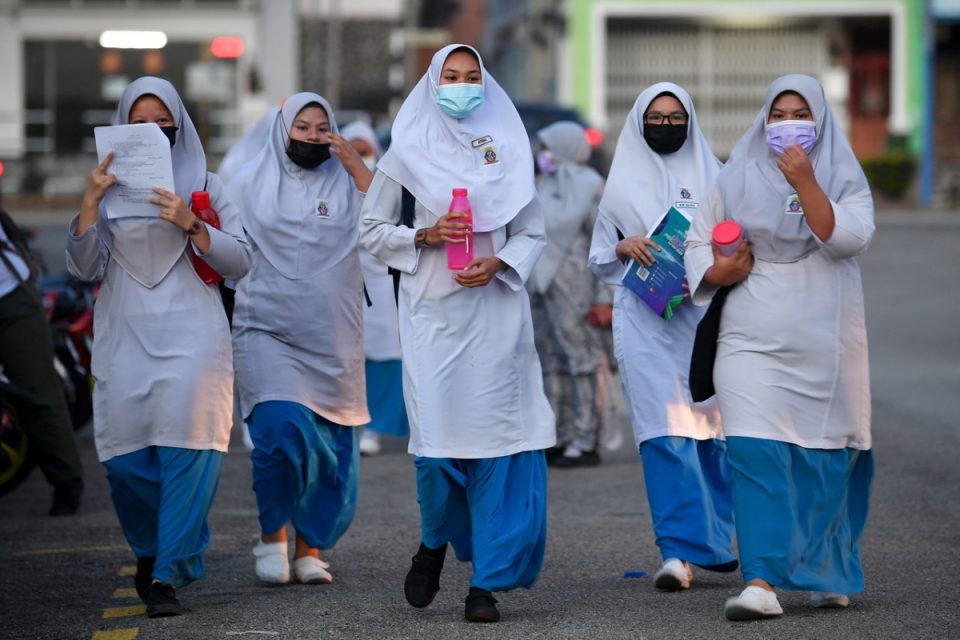KUALA LUMPUR, Sept 23 — The implementation of the face-to-face classroom learning and home based teaching and learning (PdPR) on a rotational basis, is aimed at restoring students’ morale, said Senior Education Minister Datuk Radzi Jidin.
He said the move was following the difficult period faced by the country since 2020 which caused schools to be closed for a long period.
“We are aware that when schools reopened in March this year, parents and the community saw that the situation was safe but after school hours it was chaotic and there were problems of congestion.
“Subsequently, we sat to discuss the best approach, especially taking into account the Delta variant, and came up with the idea of reducing the number of students by half,” he told the Dewan Rakyat sitting here today.
He was responding to a supplementary question from Bayan Baru MP Sim Tze Tzin on the details of the implementation of the rotational face-to-face classes and PdPR session during the Ministers’ Question Time.
The Ministry of Education (MOE) had earlier informed that face-to-face schooling session based on a weekly rotation method would be able to limit the number of students in the classroom and help reduce the risk of Covid-19 infection in schools.
Radzi said this would also help teachers monitor compliance with standard operating procedures (SOPs) among students, as only 50 per cent would be present at a time.
Meanwhile, Radzi said the ministry would also provide a manual on the rotational learning and teaching (PdP) as a guide for headmasters, teachers, students, parents and guardians to ensure its smooth implementation when schools open from October 3.
Replying to a supplementary question from Baling MP Datuk Seri Abdul Azeez Abdul Rahim on the admission of students, especially from rural areas to fully residential school (SBP), Radzi said the entry would be based on the Special School Admission Assessment (PKSK) following the abolition of the Primary School Assessment Test (UPSR).
He said, apart from focusing on academic aspects, PKSK also takes into account the potential and abilities of students for admission to SBP.
Meanwhile, during the question-and-answer session, Education Deputy Minister II Datuk Mohamad Alamin informed that the MOE was formulating a comprehensive policy for the recruitment of students to SBP by giving priority to those with potential, among underprivileged families.
— Bernama





